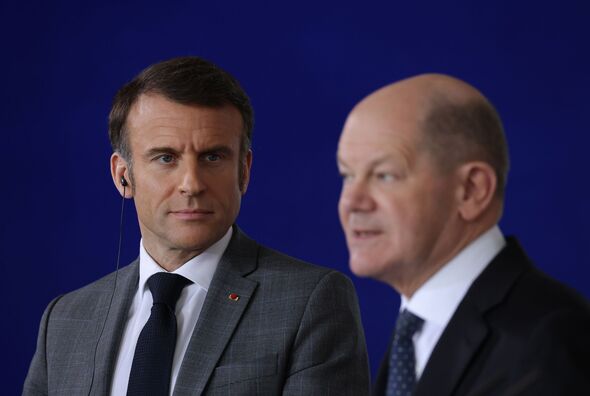In the wake of escalating global tensions and looming conflicts, France and Germany are seeking to strengthen European defence cooperation by making it easier for EU countries to collaborate on defence projects.
President Emmanuel Macron and Chancellor Olaf Scholz are leading this effort, focusing on reducing administrative hurdles and avoiding fruitless projects.
The two countries have proposed creating a “club of the willing and able” among EU governments, where member states work together on identifying and developing defence projects.
This concept led to the launch of the Permanent Structured Cooperation (PESCO), designed to foster collaboration on various defence projects such as troop mobility, cyber, and land warfare.
Despite its ambitious goals, PESCO has encountered significant challenges, with limited success to date.
Of the initial 68 projects launched under PESCO, four were abandoned due to lack of progress or relevance, and over half will not yield tangible results before 2025. According to Berlin and Paris, PESCO “does not translate into increased strategic relevance and is lacking political attention.”
The slow pace of development and the burdensome administrative process are seen as significant obstacles to achieving meaningful outcomes.
“The administrative procedures PESCO project members have to comply with are complicated, though PESCO had been created to be a framework for facilitation and dialogue,” states the discussion paper. The requirement for project managers to use different methods and create extensive documentation is seen as inefficient, with the suggestion of standardisation to streamline processes.
Furthermore, the lack of involvement from industry in PESCO projects is another challenge.
While the European Defence Fund (EDF) offers additional funding for industry programmes that meet governmental PESCO project needs, there is concern that this could lead to the launch of artificial projects that ultimately become ’empty shells.’
To address these issues, the discussion paper proposes several measures, including allowing member states to launch projects at any time instead of only during specific “waves,” and granting more authority to the PESCO Secretariat to advise and support member states.
The Secretariat, composed of the EU’s diplomatic service (EEAS), the EU Military Staff (EUMS), and the European Defence Agency (EDA), could play a crucial role in providing guidance, setting achievable milestones, and endorsing key documents to expedite project launches.
